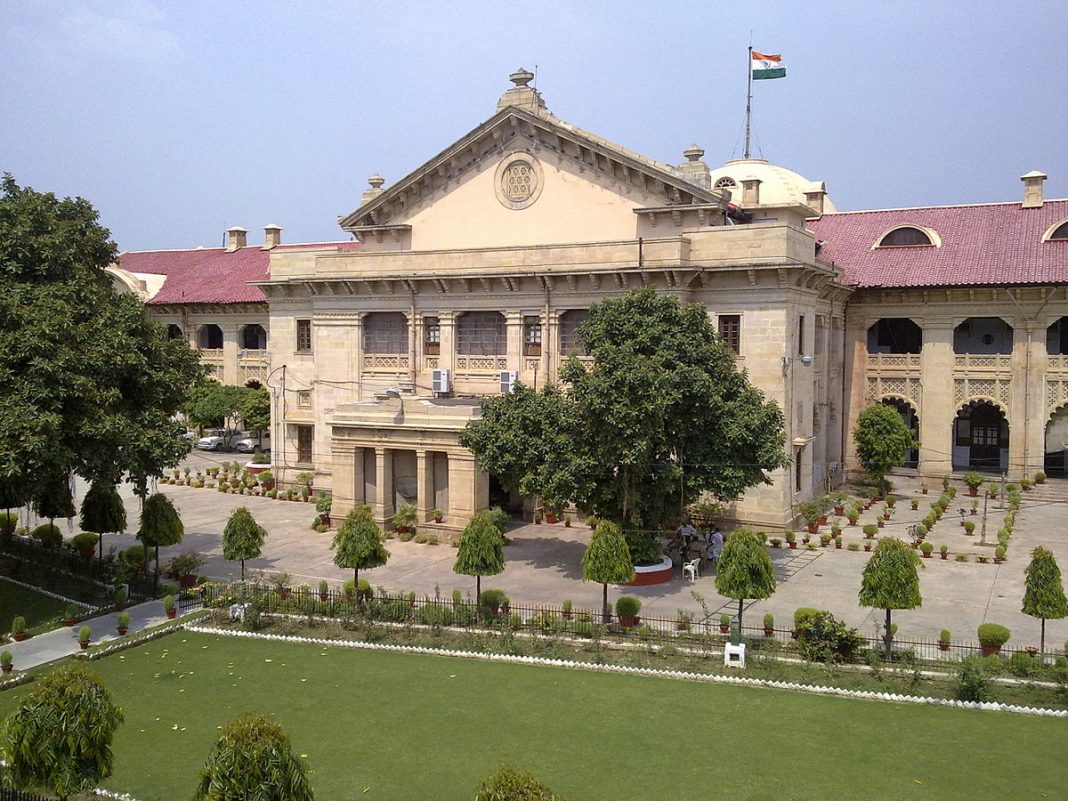The Allahabad High Court has dismissed the petition to convert the lease allotted by the Land Management Committee for five years into transferable land under the Uttar Pradesh Consolidation of Holdings Act 1953.
A Single Bench of Justice Saurabh Shyam Shamshery passed this order while hearing a petition filed by Feku @ Feku Lal Pal Gautam.
The facts of the case are that the Chairman, Land Management Committee issued an Asami Patta of certain land in Village Rakhukhore, Post Kampierganj, Tappa Panchwara, Pargana Haweli, District Gorakhpur in favour of father of petitioner on 30.06.1971 on yearly rent.
Accordingly his name was recorded in relevant Khatauni also. There is no averment in writ petition, whether above referred Patta was extended year by year or it was cancelled and whether after death of petitioner’s father (date of death is not mentioned), he continued in possession being Pattedar.
After a period of more than about 37 years the petitioner filed an application under Section 9-A (2) of U.P Consolidation of Holdings Act, 1953 with prayer that he may be declared as Bhumidhar with transferable right of land in question in terms of provisions of Section 122-B (4-F) of U.P Zamindari Abolition and Land Reforms Act, 1950.
Consolidation Officer, Kampierganj, District Gorakhpur vide order dated 11.04.2016 in Case No 415 (Feku vs State of U.P) rejected the claim of petitioner.
Petitioner being aggrieved by above referred order, preferred appeal under Section 11-A of Act, 1953 before Settlement Officer of Consolidation, Gorakhpur, however, the same was dismissed by order dated 28.03.2017.
Above referred orders dated 11.04.2016, 28.03.2017 and 24.07.2018 are impugned in the writ petition.
Krishna Nand Yadav, counsel for petitioner submitted that delay in filing the petition which is about more than four years may be condoned since petitioner is a poor person and he was in financial scarcity due to adverse effects of Covid-19 Pandemic.
Counsel for petitioner further submitted that petitioner is an agricultural labour belongs to scheduled caste and after death of his father he continued in possession as Pattedar on land in dispute in view of Section 122-B (4-F) of Act, 1950 and since petitioner occupied land before 13th May, 2007, therefore, he shall be admitted as Bhumidhar with non-transferable right and in terms of Section 9-A(2) of Act, 1953 he may be declared as Bhumidhar with transferable right on land in question, however, authorities concerned have not considered the above referred provisions of law and erroneously rejected claim of petitioner.
Per contra, A.C Nishad, Standing Counsel for State Respondents and Sudhir Bharti, Advocate for Respondent-4, i.e, Land Management Committee, have vehemently opposed the above submissions and referred the findings given in impugned orders.
They further submitted that land in question was recorded in revenue records under the category of Class-III and Patta issued in favour of father of petitioner was of year to year for a maximum five years. Petitioner has not submitted any document that after death of his father Patta was extended and it was allotted to petitioner.
In the backdrop of above referred facts and law the issue before the Court is, whether an Asami Patta issued to father of petitioner was in operation and was inherited by petitioner after death of his father and whether petitioner has a right to be declared as Bhumidhar with transferable rights?
The Court observed that,
Said Patta was issued to the father of petitioner on 30.06.1971 as an Asami only on yearly rent basis. Therefore, Rule 176-A of Rules, 1952 becomes relevant. As referred above, proviso to it has specifically provided that no lease shall be made to an Asami for a period exceeding five years. Petitioner has not brought on record any document in support of his contention that Patta issued to his father as an Asami was extended after five years, i.e, after 30.06.1976 (Patta was issued on 30.06.1971).
Further, taking note that land in question was mentioned in revenue record under the category of Class-III and while rejecting application filed by petitioner under Section 9-A(2) of Act, 1953 it was directed to be recorded as a land of Gaon Sabha as Banjar under the category of Class-V, therefore, the very basis of claim of petitioner that he was occupying land in question as Pattedar, is not available to him.
In order to take benefit of Section 122-B (4-F) of Act, 1950 the essential condition is that petitioner has occupied land in question before 13th May, 2007 as an Asami. However, as discussed above, since life of Patta issued in favour of father of petitioner already came to an end after expiry of five years, i.e, on 30.06.1976, therefore, above referred essential condition was not available to petitioner and he cannot claim that on the given date, i.e, on 13th May, 2007, he was already admitted as Bhumidhar with nontransferable right and that by virtue of long possession of land he may be declared Bhumidhar with transferable right also.
“In view of above discussion, since petitioner has not satisfied requisite condition to take advantage of Section 122-B(4-F) of Act, 1950, therefore, reliance placed by the counsel for petitioner on Supreme Court’s judgment in Manorey alias Manohar (supra) and the Court’s judgment in Chhidda (supra) would not help him in any manner.
As discussed above, since Patta issued to father of petitioner does not exist in law after five years of its allotment, i.e, from 30.06.1976, therefore, in view of Ashok Kumar (supra) and Chandan Prasad (supra) petitioner has no right to be declared as Bhumidhar with non-transferable right and application filed by petitioner under Section 9-A(2) of Act, 1953 was rightly rejected by Consolidation Officer and appeal and revision thereof was also rightly rejected. Counsel for petitioner is not able to show any illegality or irregularity in impugned orders”, the Court further observed while dismissing the petition.


